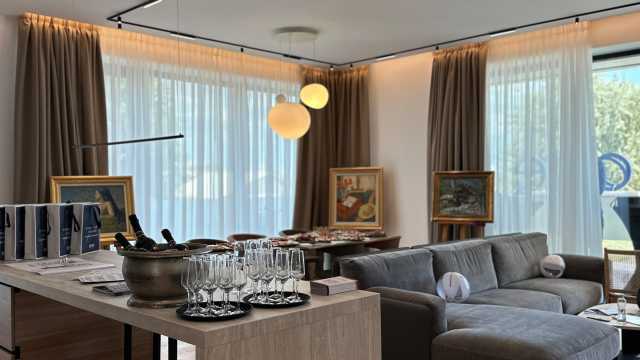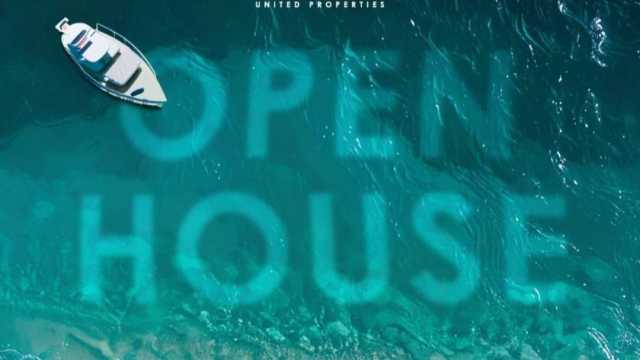The co-founder of One United Properties discussed with George Buhnici important topics such as construction, architecture, legislation, quality of building materials, and seismic risk.
Andrei Diaconescu repeatedly emphasized the importance of quality in the process of building, but also the need for a more efficient vision of Bucharest's urban development.
„Modern development, present in all western trends, is a vertical development. Because it allows us to be closer to the schools, the cinemas, a theatre, a shop etc. If we block Bucharest and build only around it, people will continue to go to work in Bucharest, take their children to school in Bucharest, come here for entertainment. And we will have incomparably more traffic. Because of the blockage, there is very little new development and then people buy out of town but come here on business. Sustainable development is done vertically, close to the areas of interest. In the last 20 years we have not proved ourselves capable of building a modern infrastructure that would allow us to live in Ploiești and work in Bucharest.”
Regarding the historical buildings that define the city, Andrei Diaconescu emphasized that these monuments are part of the cultural heritage and therefore must be restored:
"They belong to history, to heritage, our children must see them. Some of these are perhaps poorly built but need to be restored. As we do now at Ford Hall, where the facades are preserved, the structure is redone, then the facades are attached to the new structure. It's absolutely normal like that, especially since the building code stipulates that the lifespan of a building is approximately 100 years, after which the building is no longer safe."
The recent earthquake in Turkey and Syria gave rise to a wave of debates regarding the safety of homes in our country and, in particular, in Bucharest. The co-founder of One United Properties mentioned that after the 1977 earthquake, the seismic design code in the Romanian capital and the earthquake-affected areas of Vrancea changed several times, not just once. Specialists believe that the rigors and tests that are required at the moment in the field of construction are very strict, so if this building code is respected, we will not have new buildings that collapse:
"If you look at the buildings that have collapsed in Turkey, they didn't really have iron inside. It's not like that with us. The strength structure is based on the iron and how they are attached. If the code is respected, we will certainly not have buildings from the last 20 years collapse, and similarly, buildings built during Ceaușescu's time, after the earthquake, don't think they will have problems because they were built with a type of strong structure. But let's also look at the more than 2,000 old buildings with seismic risk in the centre of Bucharest, which the authorities are not consolidating."
Andrei Diaconescu also explained some of the measures One United Properties takes for the safety of the buildings:
"All the high-rise buildings we construct have in the basement, pillars that go down up to 25 meters and are 1 meter thick, which practically anchors the building in the ground, below the level -2 or -3. In general, about 10% of the building must be embedded in the ground to avoid the risk of overturning. In addition to that, what we do in all buildings is that below this 10%, we have another 20% in the basement, which provides incredible stability. Through this, you also stabilize the ground, and dissipate the wave that hits the building."
Energy efficiency is another topic that Andrei Diaconescu discussed with George Buhnici, explaining the advantages of solutions proposed by One United Properties, such as geo-exchange systems.
"Thermal insulation is also important, which, if done properly, greatly reduces energy consumption. Starting with One Peninsula, we have implemented heat exchange with the ground, where we have hundreds and hundreds of shallow wells, down to the first water table, which provides cold in the summer and warm in the winter. This ensures between 60-70% of heat and cold air consumption for the whole project and a reduction of at least 50% in costs. All the projects following Peninsula are done like this, except for the ones in the city centre, where you can't dig underneath. We thus reduce dependence on gas to 20% and electricity to 50%. I believe that 10 years from now, there will be no large projects without such solutions. We already no longer have gas in the apartments we are building, they only go to the central room, while inside everything is done with induction. It is also much safer for the health of the inhabitants, but also as a seismic precaution. In addition, we no longer have chillers, all those air conditioners that are mounted outside and that "throw" heat into the city."
Complete interview here:



